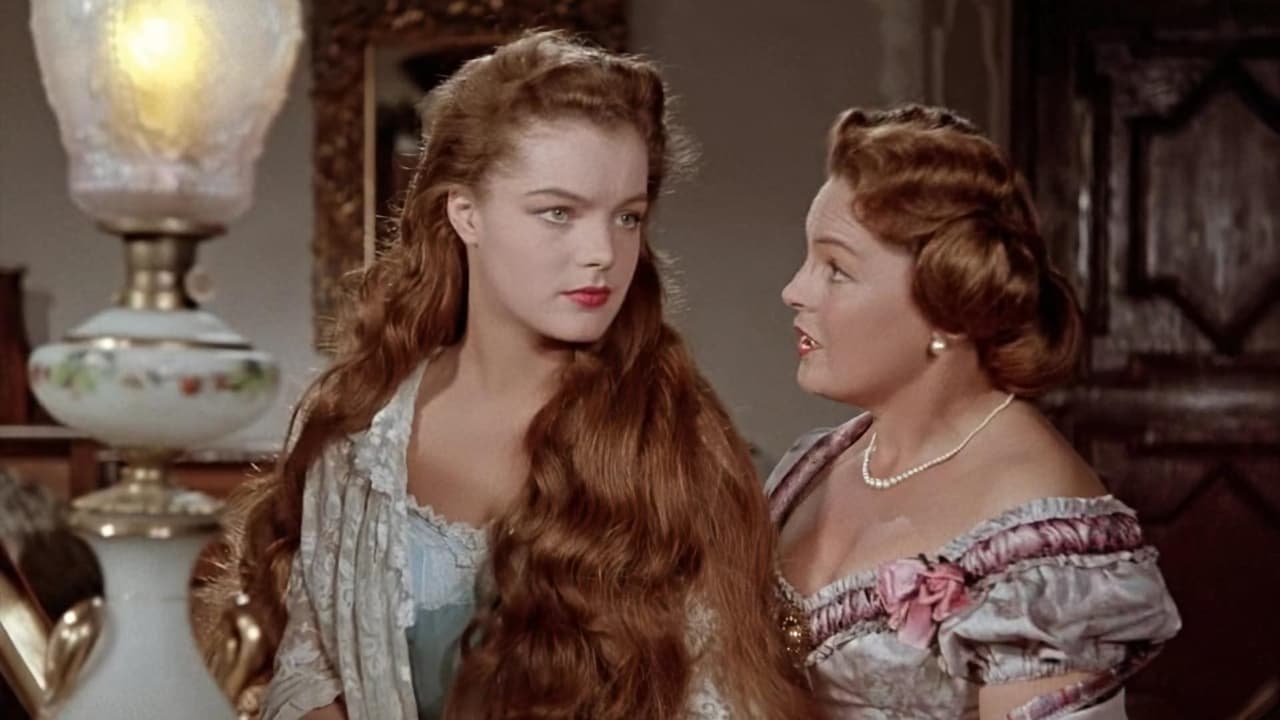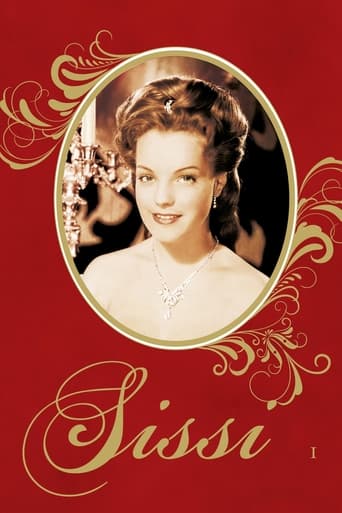

Forget all the mush for a moment (and what a mushy film this is!) and bear in mind that we are in Germany just ten years after the war. Well, we are in Austria, but the references (and the actors) are all very clearly pan-German. Indeed, with settings in Bavaria and Austria, we are very precisely in the homeland of one Herr Adolf Hitler. By a happy coincidence the same Haydn melody was used for the Austrian national anthem (played at Sissi's arrival in Austria) before the First World War as was adopted for the German national anthem after the First World War and which was still in use (in Germany) in 1955 and is of course still in use today.While Germany itself was in a state of unresolved guilt combined with intense denial, Austria, as is often pointed out, had neatly evaded all "denazification" after the war. As such it became a sort of alibi-country for the German world. The Marischka brothers, Hubert and Ernest (who directs these films) were very Vienna and had always been more operetta and waltz music than sturm und drang and blut und boden - the acceptable if frivolous side of Germanic culture.When Werner Krauss, great actor but notorious anti-semite, was unable to work in Germany, he moved to Austria, took Austrian citizenship and continued his career until rehabilitated and restored to his German citizenship in 1951. He was awarded the Bundesverdienstkreuz (German "order of merit")just the year before this film came out and, on his death in 1959 the Iffland-Ring (traditionally held by the finest living German actor)passed not as expected to Oskar Werner (a noted anti-Nazi ) but to another Austrian, Josef Meinrad whose comic major in the Sissi films is amongst his most notable film appearances.Magda Schneider, for her part, lived on in Bechtesgarten where she had been Hitler's neighbour, friend and favourite actress. Romy, herself too young to have been involved in "you know what", trod gingerly in her mother's footsteps she would for instance play the same part as her mother had played in Christine in 1957, a remake of Max Ophül's 1933 Lorelei). Unlike her mother, she was Austrian born (Vienna) so was the perfect representative both of a continuity with pre-war Germany and of an innocent new generation, uninvolved in the awkward bit that came in between.The same might be said of Karlheinz Böhm whose father, the conductor Karl Böhm, has publicly welcomed Hitler's annexation of Austria in 1938 and conducted the concert given on the occasion. He has himself, it should be said, been a notable philanthropist as well as appearing (to is cost) in one of the most remarkable and disturbing films ever made about the father-son relationship - Michael Powell's Pepping Tom.While fifties Germany avoided the spectacular in cinema and specialised in the "heimatfilm", celebrations of all those good, old-fashioned German virtues that could not be mistaken for Nazism, Austria was the perfect place to produce a kind of postwar pan-Germanic epic that is rather like a glorified version of the heimatfilm (hunting and fishing, Bavarian beer and skittles).Historical verity has necessarily to take a back seat so that the portrayal of this part at any rate of the Germanic world can be seen as entirely sympathetic and all the reverse of "you know what". Franz Josef was a deeply conservative ruler who ferociously oppressed all opposition and the Austro-Hungarian state in reality had a secret police that were worthy predecessors of the Gestapo, but not in this film. Here Franz Josef is a charming, well-meaning fellow and Herr Meinrad's policemen are just a version of the Keystone Kops.Do not get me wrong. I am not blaming Germans for wanting to make films like this. They had a ghastly reality to live with and live down and, As D. H. Lawrence once famously remarked, we have to go on however many skies have fallen. One can even enjoy the mush but it is as well to understand, at the same time, that it represented a kind of exercise in camouflage.
... View MoreI was born in Germany and grew up with the Sissi movies. Romy Schneider and Karl Heinz Boehm really had chemistry. I have been in the States since 1962 and just discovered all 3 movies again.Since then I must have watched them over and over again, most of the time without sound since I know them by heart. Just love to see the scenery (Austria and the Alps, the castle Schoenbrunn and those beautiful rooms! Make a long story short - I love the movies, I adore Romy Schneider and, of course, Karlheinz Boehm (by the way, he passed away on May 29', 2014 age 86). Romy Schneider died May 29, 1982 - she was 42 - coincidence?? Both of them made another movie together 'Kitty und die grosse Welt' (kitty and the big world) - I liked that too, but the Sissi movies were better. I liked Franz' father, he was really funny. But you had to understand German because the translation was not accurate.
... View MoreI am well familiar with the story of the Empress Elizabeth. While the basic facts are all here, the story may have been both simplified and sweetened to present it in a movie. However, the end result is a thoroughly delightful and strongly idealized version of historical events. Both Sissi and the emperor are presented as extremely likable, visually appealing characters, interacting in a fairly-like story. The entire movie plays like a fairy tale and is visually very appealing. The majestic beauty of the Bavarian scenery contrasts with the opulent setting of the Viennese court. The costumes, manners, music, dances - all true to the period. I did not expect to like it as much as I did and would recommend it to all lovers of historical drama and 19th century Austrian history in particular.
... View MoreI have seen this movie 3 years ago from the SBS TV channel in Australia. I really like this movie and also the other 2 movies Sissi 2 & Sissi 3. This story covers love, the obstacles to becoming Empress, the stumbles of the relationship with her mother-in-law and there are also some comedy scenes and funny conversations in all of the movies Sissi 1-3. Lucky me, I have seen this movie (3 of them) with English subtitles and German language, so for me this presentation is a more valuable experience to see. The DVD box set of the movie Sissi can be bought online from www.ezydvd.com.au. The presentation of the movie from that DVD box set includes original German language and English subtitles.
... View More